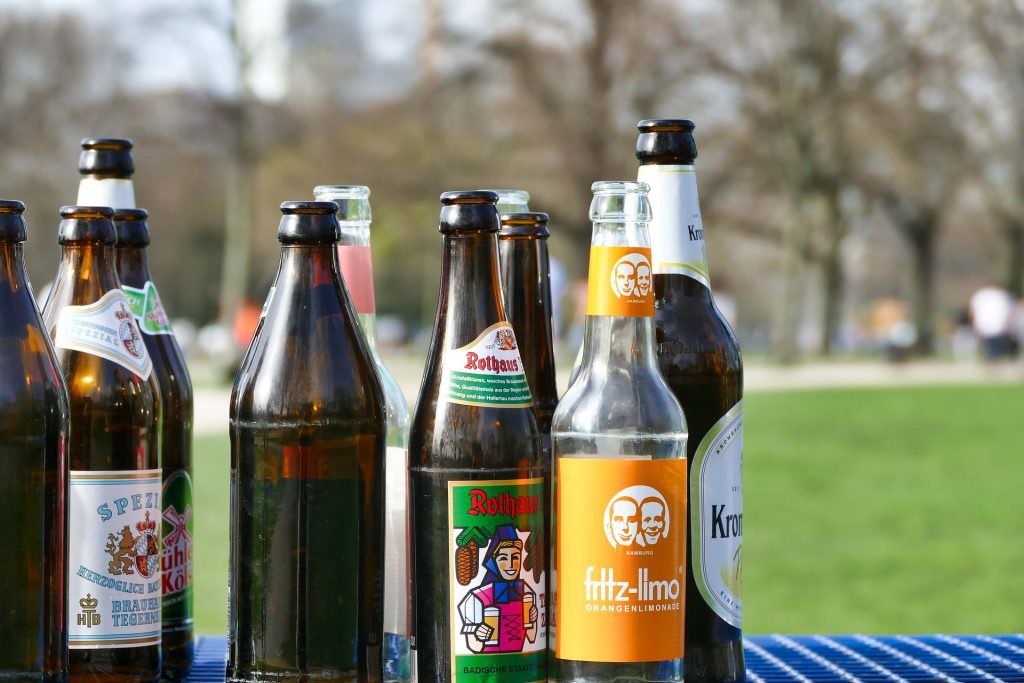
Pfand: Discover Germany’s Bottle Recycling System
Pfand, which simply means “deposit” in German, is Germany’s can and bottle return system. Since its implementation, it’s received all kinds of praise from champions of sustainability across the globe.
This month, we’re going to learn a bit more about it.

What is Pfand?
When you purchase any bottles or cans at a supermarket or any other kind of retail store in Germany, you will pay a deposit on top of the original price. In order to get your deposit back, you have to take your empty bottles and cans to a return machine (Pfandautomat). You put the container into the machine, the machine then processes it with a pleasing crunch, and once it’s finished it will print a coupon which you can exchange for cash.
The different types
In Germany, there are two different types of Pfand. These are:
- Multi-use bottles (Mehrweg): Multi-use bottles are usually made of glass or plastic that’s much thicker and will be refilled as much as 50 times before they’re recycled. Multi-use bottles can be non-alcoholic glass bottles, beer bottles and soft drink bottles made from thicker plastic and yoghurt glasses. The deposit for these bottles can be anywhere from 8 to 15 cents.
- Single-use bottles (Einweg): As the name suggests, single-use bottles are only ever used once and are recycled immediately. Typically, this category includes thinner plastic bottles and the majority of cans. Given that single-use bottles tend to have more of a negative impact on the environment, the deposit for this category is always 25 cents.
There are also types of bottles out there with no deposit attached to them. These are:
- Wine bottles
- Bottles of spirits
- Small cans
- Milk and juice bottles
- And bottles from overseas
Where can deposits be collected?
Any supermarket or shop selling bottles and cans with Pfand must also accept those bottles back, so most people will simply take their bottles back to where they bought them from and collect their deposit there. It’s worth noting that shops aren’t required to accept any type of bottle they don’t sell. For example, since Aldi and Lidl only sell single-use bottles, that’s the only type of bottle they accept.
If you are going to return your bottles at the supermarket, you will need to find a bottle return machine. You can usually find these at the entrance, or somewhere towards the back of the shop. Once you’ve put your bottles in the machine and it’s finished processing them, the machine will print you a coupon that you can exchange for cash.
When will the UK follow suit?
After being announced in 2017 by Michael Gove that such a scheme will be implemented here in the UK, but it’s looking as though we won’t see this come into effect any earlier than 2024.
It’s estimated that, in Britain, we go through around 13 billion plastic bottles each year, and just under half of that are either incinerated or sent to landfill, so the sooner the scheme lands here, the better!
Brown Recycling are Stoke-on-Trent’s leading waste management company. We’re a family-run company that believes in doing the best we can for the environment by helping commercial customers meet their recycling targets and helping domestic customers clear their household and garden waste. If you would like to learn more about the services we offer to customers throughout the region, all you have to do is get in touch with our friendly team.
This website uses cookies to enhance your browsing experience and deliver personalised ads. By clicking “Accept All Cookies”, you agree to the storing of cookies on your device to enhance site navigation, analyse site usage, and assist in our marketing efforts.



